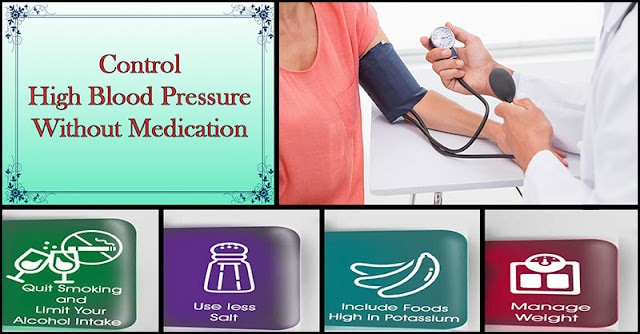The most common of all conditions of the circulatory system is high blood pressure, which is medically known as hypertension.
According to the Centers for Disease Control and Prevention, blood pressure is the force of blood pushing against the walls of the arteries that carry blood from your heart to other parts of your body.
A normal blood pressure reading is less than 120/80 mm Hg. Throughout the day, it is normal for blood pressure to rise and fall. However, when your blood pressure remains consistently high for a long duration, you suffer from high blood pressure.
The World Health Organization estimated that high blood pressure cause 7.5 million deaths, about 12.8 percent of all deaths worldwide.
Keeping your blood pressure at a normal level is really important because a rise in blood pressure is a major factor for coronary heart disease and hemorrhagic stroke, which ultimately leads to untimely demise.
Apart from taking medicines, changing your lifestyle can also help bring down your blood pressure.
Reduce Sodium Intake
You can reduce your blood pressure by limiting your sodium or salt intake in your diet.
A 2014 study published in Electrolytes & Blood Pressure shows that a reduction of dietary salt intake can decrease the number of deaths from strokes, hypertension, and cardiovascular disease.
Exercise Regularly
Have at least 30 minutes regular physical activity most days of the week. It is a great strategy to lower your blood pressure.
Your heart and breathing rate increases when you exercise and your heart gets stronger and pump with less effort. This puts less pressure on your arteries and lowers your blood pressure.
Lose Extra Pounds
You can keep your blood pressure within a normal range by keeping an eye on your waistline and losing some extra pounds. The truth is, blood pressure and weight go hand in hand.
Extra body weight puts more strain on your arteries and heart, thus causing your blood pressure to rise. It can also cause disrupted breathing while you sleep, which in turn raises your blood pressure.
Practice Deep Breathing
Aside from controlling your blood pressure, deep breathing can also lower your stress level, which is a factor that contributes to high blood pressure.
According to studies in Hypertension, slow breathing reduces blood pressure and improve arterial baroreflex sensitivity.
Take Garlic
You can use both fresh garlic and garlic extract to lower blood pressure. It relaxes blood vessels by stimulating the production of nitric oxide, which lowers blood pressure, especially systolic blood pressure. Moreover, garlic aids in improving blood circulation, lower cholesterol and prevents heart disease.
Quit Smoking
Smoking is not good for your health. Each cigarette you smoke increases your blood pressure for many minutes after you finish. Even secondhand smoke is bad for your blood pressure.
In the long term, the harmful chemicals in tobacco can increase your blood pressure by narrowing your arteries and damaging your blood vessel walls.
Limit Alcohol Intake
If you want to manage your blood pressure, you should limit your alcohol intake. Alcohol, in small amounts, can lower your blood pressure, however, this effect is lost as soon as you cross the limit and start drinking in excess. Excessive drinking reduces the effectiveness of blood pressure medications as well.
Have More Magnesium And Potassium
Magnesium is a mineral that helps blood vessels relax. A diet low in magnesium may lead to high blood pressure. Some magnesium-rich foods are whole grains and green leafy vegetables, potatoes (with the skin), pumpkin seeds, yogurt, almonds, beans, cashews, bananas, and blackstrap molasses.
An adequate amount of potassium can help get rid of sodium and eases pressure on your blood vessels. Some of its sources are oranges, apricots, milk, yogurt, melons, bananas, leafy greens, tomatoes, avocados, tuna, salmon, potatoes, sweet potatoes, nuts, seeds, and beans.
Follow The DASH Diet
Keep your blood pressure level under control by following the Dietary Approaches to Stop Hypertension (DASH) diet. This diet focuses on low-fat dairy products, whole grains, vegetables, fruits, and skimps on saturated fat and cholesterol.
Reduce Stress
Stress is a known risk factor for high blood pressure. The body is in a constant fight-or-flight mode during stress. This can result in a constricted blood vessels and faster heart rate, which leads to elevated blood pressure.
People who eat unhealthy foods or drink alcohol when under stress tend to affect their blood pressure.









